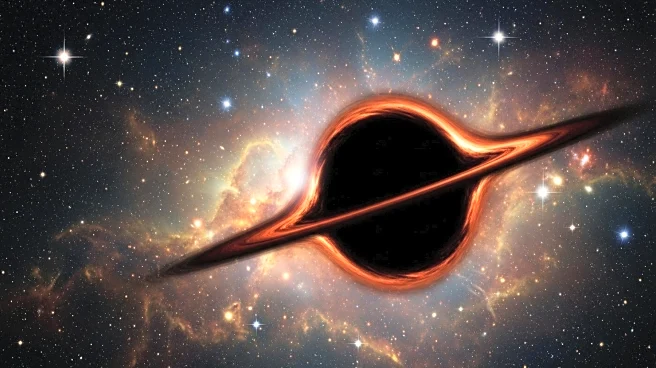What is the story about?
What's Happening?
Physicists have predicted a 90% chance of witnessing a black hole explosion within the next decade, challenging previous assumptions that such events occur once every 100,000 years. The focus is on primordial black holes, which are lighter and emit more particles through Hawking radiation as they evaporate. The research suggests that if these black holes possess a small dark electric charge, they could be temporarily stabilized before exploding, increasing the likelihood of observation.
Why It's Important?
An exploding black hole would provide a unique opportunity to catalog subatomic particles, potentially revealing new insights into dark matter and the origins of the universe. The ability to detect such explosions with current telescope technology could revolutionize our understanding of black holes and their role in cosmic evolution. This research also opens new avenues for exploring the electrical properties of primordial black holes and their interactions with dark matter.
What's Next?
The scientific community is preparing to detect signs of Hawking radiation from exploding primordial black holes using existing telescopes. If successful, this could lead to breakthroughs in particle physics and cosmology, offering answers to fundamental questions about the universe's formation. Researchers will continue to refine their models and explore the implications of dark electric charges in black holes.

















